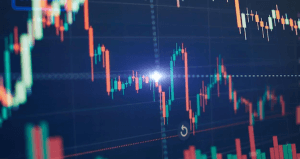Whether you’re a currency trader or a beginner seeking to expand your trading and research skills, then trading CFDs may be right for the job for you! Stock CFDs allow traders or investors to make money in rising and falling markets alike.
The CFD stands for contracts for difference.
A CFD is a widely used type of financial derivative or instrument used for exchange trading. CFDs are time-limited transactions that act as “derivatives” on the underlying security to correspond in full to its actual value in real time.
The Way CFDs Operate
A CFD (Contract for Difference) trade bets on which way the price will go – up or going down. The trader buys a CFD when he or she expects the value to go up; the trader sells the open positions when the price goes down. In fact, the net difference in price between the purchase price and the selling price of a specific instrument is added up.
Therefore, if the prices move in favor of the investor, he or she observes profit. If the price is moving against the trader, he/she sees a loss. How can I minimize my own losses and maximize my profits? Those 4 tips will be a good aid for beginners.
CFD Trading Tips
Strive for consistency: strictly adhere to the strategy
Transactions that take place and make a person make millions of “gut feelings” are utopian. You need to empirically identify for yourself a strategy that works and stick strictly to it. Only strict discipline and adherence to an algorithm lead to sustainable profits in the long run.
Try to “turn off” emotions
Adhering to a plan and not panicking is what CFD trading requires of a trader. But there are times when it is necessary to change the strategy. In these situations, it is especially important to remain an impartial observer and not a gambler. Trading is about maintaining a certain level of profitability, not about making emotional decisions based on fluctuations or market sentiment. Make decisions based on facts, not feelings.
Try to save, not multiply
The main problem for beginners is trying to make quick profits and increase your deposit. This is the wrong approach. When starting your trading career it is important to focus not on increasing your initial capital, but on its preservation.
Set loss limits and do not exceed them under any circumstances. Such a “protective” strategy allows you to slowly but surely build up the turnover. When you feel comfortable, learn to feel the market, and strictly follow the plan, you can increase your bets and go for a more risky approach.
To minimize mistakes, learn to be patient with trades and build up your trading experience before making bold decisions.
Don’t be shy about asking for advice
All successful traders were once beginners. Learn from other people’s mistakes and ask for help if you need it. Some platforms offer many lessons on CFD trading.
Professionals are willing to share their experiences and give advice. The more theoretical knowledge you get, the easier it will be to succeed in practice.
The simple but effective rules listed in the article go hand in hand with another recommendation. Constantly examine all performed deals, and tirelessly improve your skills. It’s better to keep an electronic trading diary, keeping screenshots of all deals. That way you can gather a database for analysis and work on your mistakes.
Advantages of CFDs
In contrast to stock trades, CFDs offer a number of benefits:
- No commissions because you are not buying a physical (underlying) asset and you have no obligation to do so. The CFD is a contract between you and AVA.
- Trading with leverage. To physically buy the underlying asset, you need a significant amount of capital. When you open a CTD trade, you are paying dozens of times less. Keep in mind that trading with leverage increases your profits, however, when the current market moves in the opposite direction, it leads to losses.
- Margin required to maintain an open position when the market moves in an opposite direction is equal to the margin required to open a position.
- Generally, CFDs are not tax deductible. It depends, however, on the tax policy of your country and a number of other factors.
- As the market is a dynamic one, a rise is usually followed by a fall.
Potential for risk hedging. Should a trade not go exactly as planned, open an equivalent reverse position.
- Possibility to trade a wide range of instruments on a single flat platform.
But how much money will it take to trade CFDs?
It depends on the minimum deposit size that your broker requires. You can easily start with as little as $100. Thus you will have an opportunity to trade stocks of the majority of international companies. The main thing is to take into account the margin (which usually is from 5 to 10%) and not to open too many transactions at the same time.
So, CFD is perfect for beginners who want to try their forces in trading and trade on a large number of financial markets without investing a lot of money.


